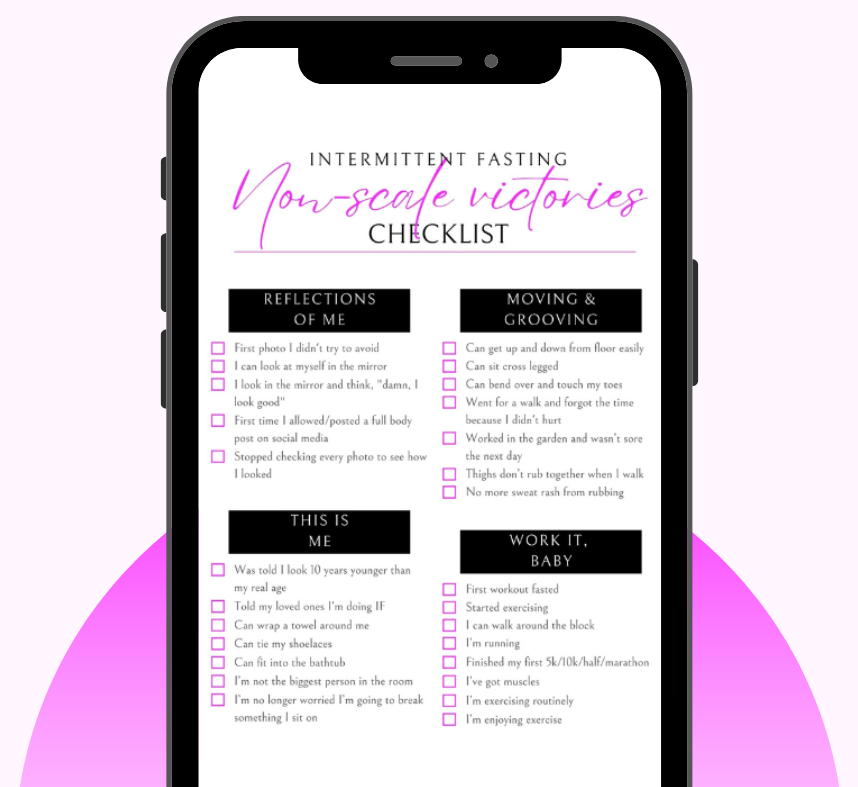Your cart is currently empty!
Why I trust my body more than diet rules

Before intermittent fasting, when I believed exercise was a major factor to losing weight, I kept my gym routine a secret. I didn’t eat breakfast beforehand. It just felt right. I liked the rumble of having an empty stomach, and instinctively, I knew my body was burning fat. But everything I’d been told emphasized fueling for a workout, refueling afterwards, followed by small, frequent meals throughout the day and eating only “good” foods.
The whole “six small meals a day” mantra never resonated with me. We’re trying to lose weight, right? So why eat all day, and always fuel up before a workout? Aren’t you then just burning the calories you’re consuming? How do you get to losing fat? It seemed counterintuitive. But who was I to argue? The fear of judgment, of being labeled with an “eating disorder,” kept me quiet. Which lead to more exercise followed by smaller meals, being exhausted all the time and constantly hungry, but never losing weight.
I love food. I enjoy eating and I savor every bite. But the constant cycle of choosing what to eat and when to eat gave me decision fatigue. Each meal snowballed into chores: planning, shopping, making, serving, cleaning. Only to feel sluggish and in a slump shortly afterwards as my body turned to digesting the food I’d just eaten.
Prepping for meals on-the-go added another layer of stress. I had to make sure I wouldn’t be tempted by the drive-thru, or wandering the aisles of the closest food store. So much time and energy spent on something that should have been enjoyable.
Once I found intermittent fasting, meals were no longer something I had to stress over. I eat what I want. What my body tells me it wants. When I say that, it doesn’t mean I eat anything and everything. Nothing is off the table, but that also doesn’t mean everything is on it. A salad with dark leafy greens is a must because we genuinely enjoy it. We gravitate to organic meats and dairy, because it just tastes better. And when you’re only having one meal a day, why not make it something worthy?
Karl loves to cook. I love to bake. We eat great food. Home made, with lots of whole foods and a balanced diet. We don’t always eat sweets, but when we do, it’s just enough to satisfy us, because that’s all we want. If we want something and it’s during our fast, we just save it until later. I don’t feel one bit of guilt, or feel the need to atone for anything I eat. And that in itself is so freeing.
I’ve never liked the feeling of a stuffed stomach, that uncomfortable feeling of eating too much. Intermittent fasting isn’t about eating as much as you can to make up for the hours of fasting, or eating in a deficit. It’s about eating just enough. My body was constantly telling me what it needed, and I was ignoring it. What’s a “deficit” anyway? A number based on someone else’s calculations. Enough food with the nutrients I need? That’s personal.
Grazing throughout the day wasn’t my style either. I could easily go hours without food, either forgetting or simply not feeling the need to fit it into my already busy day, until my body demanded it. But societal norms say this is wrong, and admitting it, yet again, suggests an eating disorder. Why is it when you don’t follow other people’s advice, there must be something wrong with you? This judgment becomes another hurdle in our weight loss journeys, adding another layer to our diet mindset.
People often ask how I can go so long without eating. The answer is simple: my body is adapted. It knows it has stored energy and how to access it. When I’m not eating, my body does incredible things to improve my overall health. It simply feels good. It’s how I live.
The key takeaway? This is my experience, and it might not be yours. But hopefully, it opens your mind to the idea that listening to your body and finding an approach to food that works for you can lead to weight loss and maintenance.

Get your 180 non-scale victories checklist
Are you tired of feeling trapped by the numbers on the scale? It’s time to shift your focus and discover the victories that truly matter on your wellness journey.
